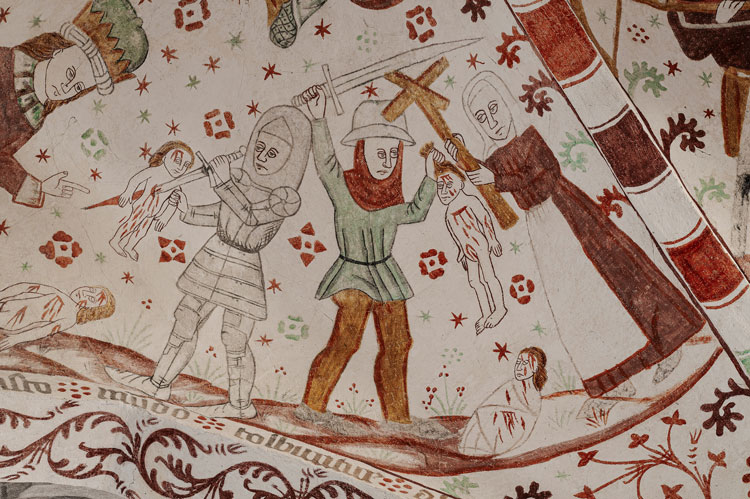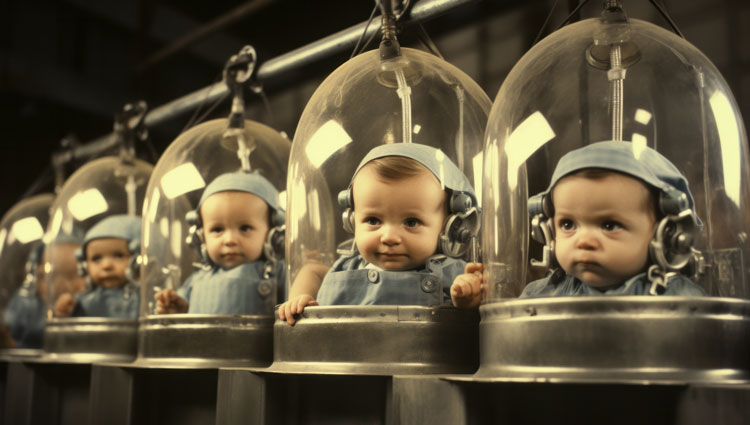Imagine the unthinkable: killing a tiny, helpless baby after it is born is being reframed as an intellectual debate.
What was once universally condemned as a horrific sin is now, in the name of “ethics,” being justified as infanticide by some academics.
Redefining Dignity: A Chilling Debate
Some modern scholars argue that the right to life isn’t about being human but depends on subjective traits like self-awareness or usefulness to society. These ideas aren’t confined to obscure corners of academia—they’re creeping into mainstream conversations, shaking the foundations of our morality and legal systems.
Take Peter Singer, for example. In 1993, he claimed that a newborn isn’t a “person” until they’re 30 days old. He proposed that doctors should have the power to euthanize disabled infants—a horrifying thought that initially shocked many. But by 1998, Singer had secured a prestigious position as a professor of bioethics at Princeton University, legitimizing his unsettling ideas.
Singer’s reasoning? Infants lack self-awareness or a sense of their lives over time, so their lives, he says, are less valuable than those of some animals.
He’s not alone. Michael Tooley and Jeffrey Reiman share similar views. Tooley argues that only beings who understand themselves as continuous entities qualify as “persons.” Reiman goes even further, claiming there’s nothing morally wrong with killing infants.
Ancient Sacrifices Revisited
These modern ideas feel disturbingly familiar. In ancient cultures, children were sacrificed to gods to gain favor or avert disaster. The Canaanites, for instance, burned infants as offerings.
While today’s academics use intellectual jargon, the principle is the same: justifying the destruction of vulnerable lives for perceived benefits. Back then, it was divine approval. Now, it’s about “social utility” or “happiness.” The parallel should give us pause—it’s a chilling reminder of how far we can fall when we abandon the inherent value of human life.

When Logic Opens Dangerous Doors
Singer also challenges the idea that birth is a significant moral milestone. He argues that factors like size, location, or development don’t determine a person’s right to life.
This logic aligns with pro-life reasoning, which holds that these distinctions are irrelevant when defending human life. But instead of advocating for life, Singer takes this argument in the opposite direction: if it’s acceptable to kill a fetus, it should be just as acceptable to kill a newborn.
This kind of reasoning doesn’t stop with infants. If self-awareness is the benchmark for human worth, what happens to others who lack it? The elderly with dementia? People with severe disabilities? Those in temporary comas? When life’s value becomes subjective, no one is safe.
Human Life: A Sacred Value
Pro-lifers argue that human life should be protected from conception, precisely because there’s no clear moral dividing line beyond that. Ironically, Singer’s argument reinforces this point, even as he uses it to advocate for killing the most vulnerable.
It’s a stark reminder of the stakes. Giving up the belief that all human life is equally valuable risks creating a world where the weakest are left unprotected.
Death with a Smile?
Singer takes this dehumanization further with his utilitarian approach. He claims the worth of a life can be measured by its impact on collective happiness. If a baby is unwanted or disabled, he suggests their death could be justified if it increases overall happiness.
In practice, Singer proposes a “trial period” after birth where parents could decide whether to keep or kill their child based on the perceived burden or joy the baby brings.
Think about that—a newborn, alive and breathing, reduced to a product you can return if it doesn’t meet expectations. This idea destroys the sacred bond between parent and child and turns babies into commodities.
This mindset doesn’t just threaten infants. It assumes human worth is based on convenience or happiness, raising terrifying questions. What about the elderly, the disabled, or anyone else who might be seen as a “burden”? Who decides their fate?
The Roots of Ranking Humanity
Singer’s views aren’t new. Over a century ago, Charles Darwin and others ranked humans based on traits like intelligence or gender. Darwin claimed men’s larger brains made them superior to women. Gustave Le Bon, a social psychology pioneer, went even further, dismissing women as intellectually inferior and comparing their brains to gorillas.
Singer’s logic avoids such overt sexism but follows the same dangerous pattern. He ranks humans based on arbitrary traits like self-awareness, dismissing those who don’t meet the standard as less valuable. This kind of thinking has justified oppression, slavery, and genocide throughout history.
A Call to Protect the Vulnerable
Infanticide isn’t just a theoretical discussion—it strikes at the heart of what makes us human. If we abandon the belief that every life has equal value, we risk creating a society where the powerful decide who gets to live.
From ancient sacrifices to modern “ethics,” the thread is clear: a willingness to devalue vulnerable lives for convenience or gain. This isn’t progress—it’s a return to humanity’s darkest instincts.
The true test of any society is how it treats its weakest members. Let’s ensure we don’t fail that test. Every life matters, no matter how small, weak, or inconvenient.

